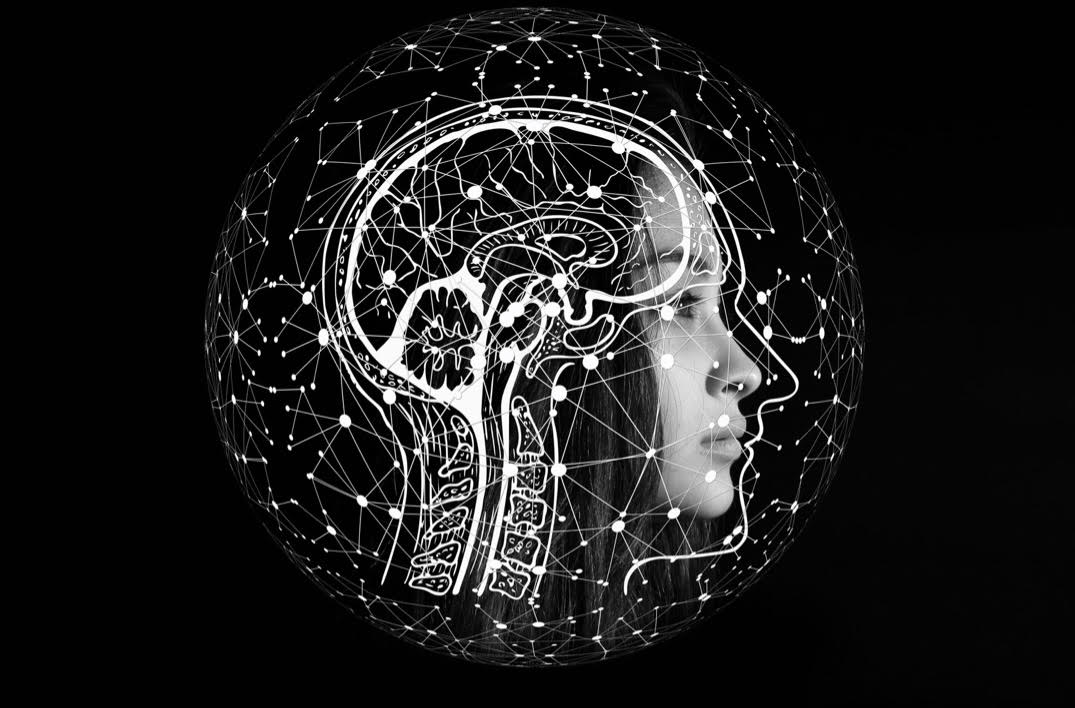
How CBD can Boost Mental Performance
How CBD can Boost Mental Performance
20 December 2021

A single dose of cannabidiol (CBD) helped increase blood flow to the hippocampus, an important area of the brain associated with memory and emotion, finds a new study led by UCL researchers.
Researchers say the findings could be an important discovery for conditions which affect memory, such as Alzheimer’s disease and post-traumatic stress disorder (PTSD), and could help better target therapies.
In the study, published in the Journal of Psychopharmacology, researchers set out to investigate how CBD influences cerebral blood flow in different regions on the brain involved in memory processing.
Lead author, Dr. Michael Bloomfield (UCL Psychiatry) said: “Cannabidiol (CBD) is one of the main constituents of cannabis and is gaining interest for its therapeutic potential.
“There is evidence that CBD may help reduce symptoms of psychosis and anxiety. There is some evidence to suggest that CBD may improve memory function.
“Additionally, CBD changes how the brain processes emotional memories, which could help to explain its reputed therapeutic effects in PTSD and other psychiatric disorders. However, the precise mechanisms underlying the effects of CBD on memory are unclear.”
For the randomized controlled study, 15 healthy young adult participants, with little or no history of cannabis use were selected.
On different occasions, separated by at least a week, each participant was given a 600mg of oral CBD or a placebo. The doses came in identical capsules, so participants didn’t know which one they were taking on which occasion.
Researchers measured blood flow to the hippocampus using ‘arterial spin labelling’ – a magnetic resonance imaging (MRI) brain scanning technique which measures changes in the blood oxygen levels.

Findings
CBD significantly increased blood flow in the hippocampus, however CBD did not cause significant differences in blood flow in other regions of the medial temporal lobe (MTL), of which the hippocampus is a significant component.
In the prefrontal cortex, the area of the brain used for planning and decision making, CBD caused a significant increase in blood flow in the orbitofrontal cortex.
Dr. Bloomfield added: “To our knowledge, this is the first study to find that CBD increases blood flow to key regions involved in memory processing, particularly the hippocampus.
“This supports the view that CBD has region-specific blood flow effects in the human brain, which has previously been disputed.
“If replicated, these results could lead to further research across a range of conditions characterized by changes in how the brain processes memories, including Alzheimer’s disease, where there are defects in the control of blood control flow, along with schizophrenia and post-traumatic stress disorder.”

Most people are familiar with the psychoactive effects of tetrahydrocannabinol (THC). However, CBD causes no such cognitive impairment. In fact, CBD has been shown to support brain health, both functional and mental clarity, in several interesting and positive ways.
CBD and the Endocannabinoid System
The body’s endocannabinoid system (ECS) is made up of extremely sensitive receptors which act as neurotransmitters. The CB1 and CB2 receptors are found throughout the body’s central nervous system and within the peripheral nervous system. The ECS serves many purposes such as regulating your cognitive processes that govern memory, appetite, immune response, stress, and pain perception.
The Effects of THC and CBD on the ECS
The cannabis plant is brimming with over 110 cannabinoids that all have the ability to bind by varying degrees to the ECS receptors to create a whole-body experience. THC closely mimics the body’s anandamide and the CB1 receptors which is what results in its famous psychoactive effects. Anandamide is often referred to as the body’s ‘bliss molecule’ and is what can create feelings of euphoria. CBD does not interact in the same way nor does it produce any euphoric or mind-altering effects, but this does not mean that it has no positive impact on the brain’s mental functions.
CBD Effects on the Brain
CBD merges very loosely with the CB1 receptors and can block the ability of THC to cause any sort of euphoric effects by inhibiting the anandamide. However, CBD binds very well with the body’s CB2 receptors to create beneficial brain and functional effects.
Blood Flow Reduction
The Journal of Psychopharmacology published a study that looked at CBD for the treatment of Social Anxiety Disorder (SAD). The participants in the study reported feeling better when they used CBD to relieve anxiety. Researchers performed brain scans and noticed that there were noticeable changes to the blood flow in areas of the brain that are commonly related to anxiety.
Potential Alzheimer’s Treatment
Research into the use of CBD as a possible Alzheimer’s treatment or preventative is ongoing. However, there is promise that it might prove beneficial in helping with the degenerative brain disorder. Many theorize that oxidative stress has an impact on the brain and might play a role in the development of not only Alzheimer’s disease but also Parkinson’s disease and atherosclerosis.
The body’s CB2 receptors work naturally to cope with oxidative damage. In a study published in the Journal of Alzheimer’s Disease, it was found that CBD used as a long term treatment appears to provide impressive neuroprotective, antioxidative, and anti-inflammatory properties.
The Dementia Care Central also outlines the positive research being gained about the use of CBD in Alzheimer’s research. Without a doubt, inflammation has a negative impact on Alzheimer’s disease by causing the brain’s cell failure and leading to blockages, but the inflammation appears to be reduced when CBD is used. Once inflammation is lowered, oxygen is released to the brain’s cells. CBD use may have the ability to not only prevent but potentially reverse Alzheimer’s to a certain extent.
Promotes Healthy Brain Cells
Many people accept a certain degree of age-related cognitive decline as a natural part of growing older. However, you can take steps to preserve your brain function and mental well-being. CBD might just help you preserve your mental health.
Many things lead to cognitive declines such as lifestyle choices and genetics. Neuroplasticity and neurogenesis do slow with age naturally. Your brain simply doesn’t create as many new brain cells so your ability to learn new processes or reorganize might be delayed. If a person suffers a stroke or some other brain injury, the process becomes even more impaired. Brain cells regenerate less quickly or not at all. However, one study found that CBD helped to increase neuroplasticity and neurogenesis.
Depression and CBD
Neurotransmitters play a role in depression for many individuals. Research has revealed that CBD increases the body’s levels of glutamate and serotonin which help control the brain’s function and mood. They also play a role in learning and memory. Creating homeostasis in such neurotransmitters appears to help relieve depression and might further boost brain function.
The use of prescription antidepressant medications is not without side effects (sexual dysfunction, insomnia, agitation, and mood swings are just a few unpleasant side effects) but they can take weeks to start rendering any benefits. In a recent 2019 study, CBD was shown to offer uplifting mood results quickly compared to other medications. Not only were the results fast acting with CBD, but they were also long-lasting. Many people prefer to turn to CBD as a more natural option that has few (if any) side effects to cope with their mood swings and bouts of depression.
CBD for Anxiety
Many people suffer from not only depression but also anxiety that has an impact on their everyday life. They are often unable to enjoy activities that once brought them happiness due to anxious feelings. Around the world, studies are underway to look at the benefits of CBD for anxiety. One impressive research article found that taking 600 mg of CBD per day reduced social anxiety in the study’s participants. Another study looked at the results of using a lower dose of CBD (300 mg) and found that the reduced amount was also just as effective at reducing anxiety.
As with depression, anxiety has been linked to low levels of serotonin so CBD’s effect on the CB2 receptors which control serotonin appears to impact brain function in a positive and potentially beneficial way.
At Also Organics, we offer CBD products derived from the highest-quality hemp grown organically in Oregon. We believe that balance comes from the inside out and that your brain’s health - both functional and mental - may benefit from CBD. Our full spectrum products offer the benefits of the entourage effect to create a whole-body experience the way Mother Nature intended.
Why Choose 8Labs CBD?

Message from 8Labs Founder & CEO
"We know that our CBD works, but we understand why you might be hesitant. There is a lot of misinformation about CBD out there. Don't worry, we are here to help answer any questions you may have. Welcome to your CBD journey!"
-Erin Lorenzana
---------------------------------------------------------------------------------------------------------
---------------------------------------------------------------------------------------------------------
Our hemp has a unique chemical composition. It is extremely rich in CBD and other cannabinoids with less than 0.3% THC. Therefore, our products do not have any negative effects associated with marijuana and THC use. With 8LABS CBD, you receive all the positive benefits of hemp’s full spectrum of components, with absolutely zero psychoactive effects.
8LABS CBD products contain the full spectrum of cannabinoids including CBC, CBG, CBDA, CBN and others. Additionally, our extracts contain terpenes - organic hydrocarbons found in the essential oils of plants. Together CBD, other cannabinoids and terpenes all interact synergistically to create what scientists refer to as an “entourage effect” that magnifies the therapeutic benefits of the plant’s individual components—so that the medicinal impact of the whole plant is greater than the sum of its parts.
We have a strict quality control program including on site chromatography reviews and independent lab tests on each batch of product. These reports confirm that the components of hemp remain potent, completely undenatured, and fully active. We maintain high standards of purity and potency to deliver only the highest grade CBD.
Sources:
1. https://www.ucl.ac.uk/news/2020/aug/cannabidiol-improves-blood-flow-brains-hippocampus
2. Journal of Psychopharmacology - https://journals.sagepub.com/doi/abs/10.1177/0269881110379283
3. Journal of Alzheimer’s Disease - https://www.ncbi.nlm.nih.gov/pubmed/25024347
4. Dementia Care Central - https://www.dementiacarecentral.com/aboutdementia/treating/cbd/#:~:text=effects%2520remain%2520unknown.-,Alzheimer's%2520Disease,negative%2520impact%2520of%2520Alzheimer's%2520disease.
5. Neuroplasticity and Neurogenesis Study - https://www.ncbi.nlm.nih.gov/pubmed/27889412
6. Glutamate and Serotonin Study - https://www.ncbi.nlm.nih.gov/pmc/articles/PMC5569602/
7. CBD vs Pharmaceuticals Study - https://www.ncbi.nlm.nih.gov/pubmed/29869197
8. CBD for Social Anxiety Study - https://www.ncbi.nlm.nih.gov/pubmed/21307846
9. CBD dosing for Anxiety Study - https://www.ncbi.nlm.nih.gov/pmc/articles/PMC5412699/

